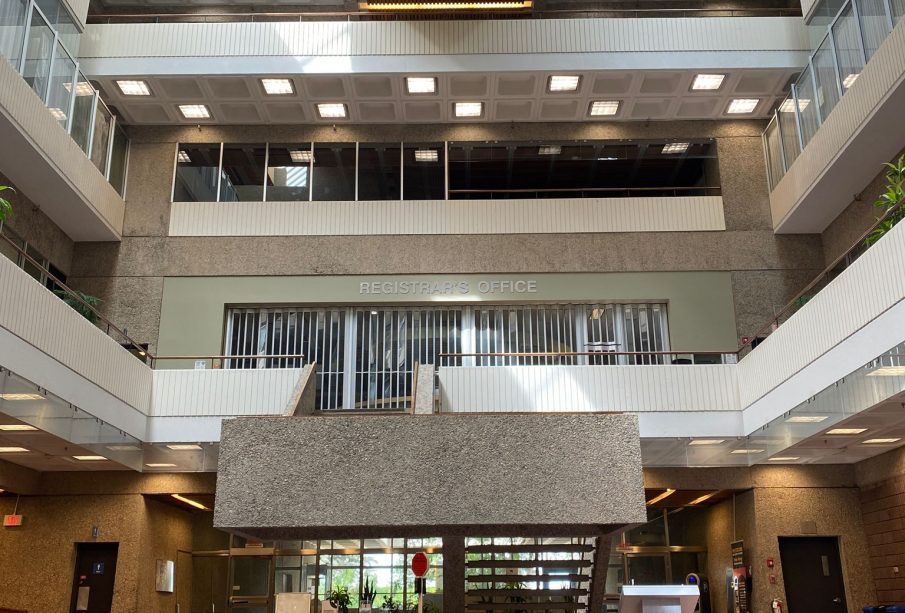
While waves are being made by the delivered petition, dams continue to inhibit progress
It’s been two weeks since CUPE 5791 organizers delivered the Petition to UofR President concerning tuition raises, budget cuts, and demands to mitigate the negative impacts of both on students and staff at the University of Regina (U of R).
Both tuition and the budget are approved of by the Board of Governors, who are responsible for financial operations of the university as well as its strategic direction as an academic institution. Jeff Keshen, president of the university, explained that during budget deliberations the Board will mainly look at things like “what is our current deficit; we are legally obliged to balance our budget. Now, we can carry forward a plan to balance over more than one year, but we have to show a clear path legislatively toward a balanced budget.”
The authors of the petition note that base funding from the provincial government for the U of R has fallen 13.7 per cent in the past four years, leaving a “gap being filled by tuition increases, making university education less affordable and accessible for residents. International and domestic students are unfairly shouldering this burden. Staff are being laid off, positions are being cut or consolidated. The quality of education at the U of R is in jeopardy.”
On June 12, 2023 Keshen confirmed in an interview that he had received, read, and was responding to this petition. “I sent the petition off as I promised I would to the government, and I’ve sent out an invitation too – I wrote the organizers and am still waiting for a response.” Keshen hopes that conversations with the university community will be productive, with all working to help “the institution to thrive.”
The president was asked whether or not the petition signers’ claim that “The quality of education at the U of R is in jeopardy” has merit, and paused to think for a tense 17 seconds before responding: “I think that proper funding of universities is essential to provide the quality of education to students to set them up for success. I think that as an institution we need to be aware of affordability, accessibility, and that we also need to as a province, as a community – not just us but all the universities and all the post-secondaries here – be aware of how we compare to other institutions that are out there.”
He continued with points on the country-wide “erosion of funds for students,” noting that certain impacts of budget troubles can include the deferral of much needed maintenance projects and repairs, steadily increasing amounts of students in courses, “in programs that will have to reinvent themselves, you’ll see it in consolidation of different things. […] the economics will always drive the reality.”
“It’s an objective fact, it is just an objective fact that as you continue as an institution to need funds, you’re going to have to find it from somewhere or you’re going to have to make choices that are going to enable you to balance the budget.” Keshen went on, “Inevitably, those factors have consequences. The degree to which it creates to say that you are not offering the education that students need and want, that I think is not something that I would say we’re at at this stage. But again, the pattern is that you continue to have to make choices if you continue to have to make those choices.”
Tuition at the University of Regina has nearly doubled in price in the past decade, which CBC News covered on July 6 noting a spring/summer semester average jump from $2,662 in 2013 to $4,117 in 2023.The Carillon thought it would be useful to ask the president what the university has been doing to ensure student experiences, support, and opportunities are also ‘inflating’ at a similar pace.
Keshen spoke on improvements that the university community has yet to see. “Why is it that a student will pay so much to go to some universities, and hesitate and be dissatisfied with other ones? That’s something that really resonates with me because the tuition has to reflect, I think, the experience of the students, and we are putting more money into that. I think we do also need to do better with our bursaries and scholarships to help students, I think we need to do better and do more to provide on-campus work experience for our students, I think that we need to do and invest more in co-ops for our students to prepare them. And again, I hate saying this, I think it’s such a rhetorical way of saying it: we’re not there.”
The president was vocal on some of the supports he desires to see from the provincial government, one priority being a scholarship program, but noted that the public’s perception of universities can greatly impact the funding afforded post-secondary institutions. “I do think that the public needs to be more aware of what the universities are doing, and the way that we drive discovery. The way that our graduates in fact do lead in our society, the success of graduates with university education, the way that our graduates in fact do better economically, culturally they enrich our society – I think that’s part of it.”









